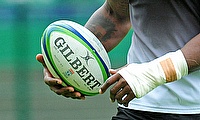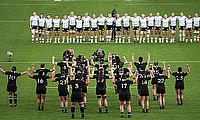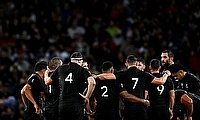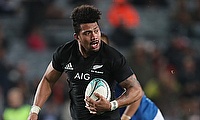NZ Community Rugby
New Zealand rugby is structured very differently to in England. There are some shared commonalties through the franchise system, with the Celtic nations, but the regional set-up is incomparable. Junior rugby is broadly the same except for the use of a weight category.
School 1st XV's are highly valued and provide the premier platform for aspiring youngsters to showcase their abilities. Even the 'best' players do not play men's rugby until they leave school. The New Zealand Rugby Union uses the 1st XV's as a platform to professional rugby. The school and college rugby scene is ultra competitive. Club rugby is the traditional stepping stone between the school and professional game. Provincial players are drawn from the best club players with Super 15 players playing whenever possible. All Black's make sporadic provincial appearances and are often serving rest periods during the competition.
From the outside, New Zealand rugby is in rude health. The All Blacks last tasted defeat in the dying days of August 2011. Choking remains a problem, but champagne is now the cause.
Since Richie McCaw hoisted the Webb Ellis above his head, the All Blacks have celebrated by helping themselves to 17 straight victories. A draw against the Wallabies was greeted by national mourning. But is this prodigious well-being a facade?
David Chisholm has been involved with club rugby in the North Harbour region for several decades, playing and then managing, the Helensville Rugby Club before it and Kumeu Rugby, merged into the Western Pioneers.
Mr Chisholm is a firm believer in maintaining the traditions of rugby. His view on elite rugby is very clear: "I support North Harbour but I am not overly fussed about the Auckland Blues. Many of us can identify with North Harbour as our region but not the franchises. We are faced with too much rugby.
This disillusionment is due to the artificial creation of sides such as the Auckland Blues. Auckland, North Harbour, Counties-Manukau and Northland have all been merged into the Blues. In regional rugby, these teams are bitter rivals. The franchise bond is tenuous and not dissimilar to the creation of the Welsh regions. Crowd numbers and public passion are lower than originally hoped.
The perception is that it is the northern hemisphere which has sold out to the cash-cow of extensive fixture lists. However, for such a small country, New Zealand does have a bewildering number of competitions. The saving grace is that there is a reasonable level of mobility between the tiers. Mr Chisholm was approving of this: "We do not see as many of the AB's in club rugby as we did before but fringe Super 15 and provincial players do regularly front up.
Schools rugby is the gene pool of the All Blacks and is in fine fettle. The circuit is ultra-competitive and provides a showcase for emerging talent. Many Pacific Islanders teenagers are signed by schools on so-called `schoolships`. A sceptic would say this is the first step towards meeting eligibility criteria for the All Blacks, but not many countries can honestly say that they do not make use of residency qualifications. The only real blot is the disparate size of the players.
Mr Chisholm commented: "Schools rugby is working. It is brilliant. The NZRU use it as the next step towards professional rugby. The problem is many young players are on 'schoolships' and often neglect their studies. This can lead to them being held back and 19-20 year olds ploughing into 17 year olds on the footy field.
Mr Chisholm believes this has contributed to an apparent demise in club rugby: "Many of these boys then give up when confronted by men in the club game. Others simply give up and play on their computers. Some now go to Rugby League. This is greatly reducing the numbers our clubs have. Many rural clubs have had to merge to keep their senior teams afloat.
There is opposition to the schools game from clubs, who believe youngsters should be allowed to play club rugby whenever their schedules allow: "College rugby takes precedence over everything else. The rule is no club rugby for young players until they have left college. Most club rugby supporters disagree with this. It hampers us.
The seeming problem of club rugby is as much financial as physical. The northern hemisphere has witnessed its fair share of financial difficulty. Club rugby is purely amateur but teams can and do, incentivise players through a variety of methods, from petrol money to food. Mr Chisholm described the problem: "Money is the driver of senior club rugby; those clubs with wealthy supporters do very well. The others make up the numbers. Trouble at club level is growing.
If you shrink the base of the pyramid then eventually the top has nothing to keep it from collapse. Total collapse is unlikely because of the Kiwi's tremendous passion for all things rugby: "We still love our rugby. Interest in Rugby is as great as ever and always will be. It is playing numbers which are not. We need to tweak and evolve rather than radically overhaul. I do not believe club rugby is wholly sustainable in its current format.
It is not all doom and gloom. Mike Eagle, the NZRU Chairman commented at the 2012 AGM: "Our Rugby World Cup legacy programme is all about using the tournament to grow the game and there are already promising early signs in player registrations.
Another positive is that the NZRU have posted a profit and are pro-actively assisting the regions. This allows money to trickle down the pyramid to the clubs. Mr Eagle continued: "It is heartening that in the past year 18 of our 26 unions were back in the black. In 2010, the picture was much worse with just eight unions posting a profit. But we all have to do better and return to a path of sustainable and growing profits. If we don't do that debt will grow and end up depriving us of the means to nurture the game."
The NZRU are not panicking. Mr Eagle was upbeat throughout the AGM: "The rising numbers coming through the gates at Investec Super Rugby or watching from home on Sky TV are also encouraging.








